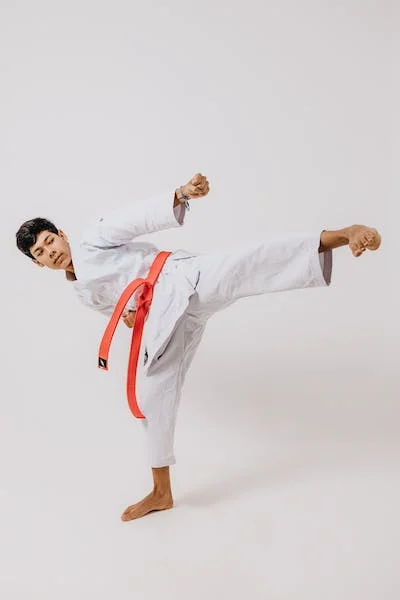Martial arts, beyond their reputation as self-defense disciplines, have long been recognized for their profound impact on overall health and well-being. In this article, we will delve into the myriad health benefits that martial arts offer, exploring the physical, mental, and emotional aspects that make practicing martial arts a holistic approach to achieving balance and vitality.
The Holistic Nature of Martial Arts for Health
Martial arts encompass a diverse range of disciplines, each with its unique techniques and philosophy. While they may differ in origin and approach, they share a common thread – the integration of body and mind. Martial arts for health is not just about physical prowess; it’s a holistic journey that harmonizes the body, mind, and spirit.
Physical Health Benefits of Martial Arts
Martial arts training involves a combination of aerobic and anaerobic exercises, contributing to enhanced cardiovascular fitness. Engaging in practices such as sparring, kata, and drills elevates the heart rate, improving circulation, and promoting a healthy cardiovascular system. The sustained physical activity inherent in martial arts supports overall heart health.
Strength and Flexibility
Practicing martial arts cultivates strength and flexibility through a variety of movements. Kicks, punches, grappling, and stances work various muscle groups, leading to increased strength. Simultaneously, the dynamic and often acrobatic nature of martial arts techniques enhances flexibility, promoting better joint health and reducing the risk of injuries.
Improved Balance and Coordination
Martial arts emphasize precise and controlled movements, contributing to improved balance and coordination. Techniques such as kicks, throws, and blocks demand a heightened sense of body awareness. Over time, practitioners develop enhanced proprioception, leading to better overall balance and coordination in both martial arts and daily activities.
Mental Health Benefits of Martial Arts
The practice of martial arts provides an outlet for stress relief. Engaging in focused, repetitive movements and techniques allows practitioners to channel and release stress and tension. Additionally, the meditative aspects of martial arts, often incorporated into training sessions, contribute to a sense of calm and mental well-being.
Enhanced Concentration and Focus
Martial arts require a high level of concentration and focus, demanding practitioners to be fully present in the moment. This mental engagement not only sharpens cognitive abilities but also promotes mindfulness. The ability to concentrate on the immediate task at hand translates to improved focus in various aspects of daily life.
Discipline and Mental Resilience
Training in martial arts instills discipline and mental resilience. Consistent practice requires commitment and dedication, fostering a strong sense of discipline. Facing challenges and setbacks during training builds mental toughness and resilience, valuable attributes that extend beyond the martial arts studio.
Emotional and Social Benefits of Martial Arts
The progressive nature of martial arts training, where practitioners advance through ranks and acquire new skills, contributes to increased self-confidence. Accomplishing goals, mastering techniques, and overcoming challenges during training empower individuals, positively impacting their self-esteem and self-image.
Sense of Community and Camaraderie
Martial arts schools often foster a sense of community and camaraderie. Training with fellow practitioners creates a supportive environment where individuals encourage and motivate each other. The shared journey in martial arts builds bonds and connections, fostering a sense of belonging and social well-being.
Emotional Regulation
Martial arts training involves learning to control emotions and respond appropriately to different situations. Practitioners develop emotional regulation skills through disciplined practice and exposure to varying levels of intensity during sparring or self-defense scenarios. This emotional control contributes to overall mental and emotional well-being.
Choosing the Right Martial Art
Selecting the right martial art is essential for aligning personal preferences and fitness goals. Whether it’s the striking techniques of Karate, the fluid movements of Tai Chi, or the grappling focus of Brazilian Jiu-Jitsu, each martial art offers unique health benefits. Exploring different disciplines allows individuals to find the one that resonates most with their preferences and objectives.
Consistent and Progressive Training
Consistency is key to reaping the health benefits of martial arts. Regular and progressive training, under the guidance of experienced instructors, ensures a steady improvement in physical, mental, and emotional aspects. Setting achievable goals and tracking progress enhances motivation and commitment to the martial arts journey.
Conclusion
Martial arts for health is a multifaceted approach that transcends the physical aspects of training. The integration of cardiovascular fitness, strength, flexibility, mental focus, and emotional well-being makes martial arts a holistic endeavor. As individuals embark on the journey of martial arts, they not only enhance their physical health but also cultivate mental resilience, emotional balance, and a sense of community. The pursuit of martial arts becomes a path to achieving harmony, balance, and overall well-being.




